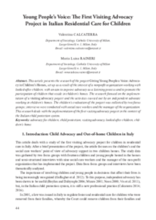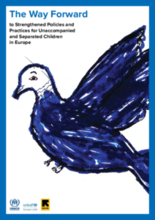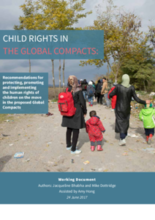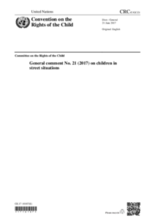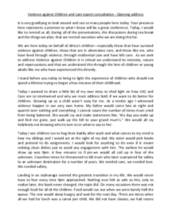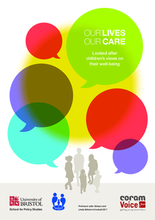Displaying 201 - 210 of 377
This article presents the research of the project "Giving Young People a Voice: Advocacy in Children’s Homes," which evaluated the implementation of a visiting advocacy project and services provided by an independent advocate working in children's homes in Italy.
This paper, based on findings from a consultative process with a variety of actors, captures a multitude of concrete recommendations for more efficient and harmonized policies and practices, taking into account the best interests of unaccompanied and separated children (UASC) in Europe.
This study examined the extent to which children and adolescents participated in decisions that affected them at the points of removal and reunification in the child protection process in Spain.
This working document by the Initiative for Child Rights in the Global Compacts, a multilateral initiative supported by 26 organizations, provides goals, targets and indicators with respect to six priority issues involving refugee and migrant children.
In this video message, Marta Santos Pais, SRSG on Violence against Children, addresses the June 2017 Africa Expert Consultation on Violence against Children (VAC) in All Care Settings.
General Comment 21, issued by the Committee on the Rights of the Child, provides guidance to States on developing comprehensive, long-term national strategies on children in street situations, utilizing a child rights approach and addressing both prevention and response in line with the Convention on the Rights of the Child.
This document includes the keynote address given on the first day of the Africa Expert Consultation on Violence against Children (VAC) in All Care Settings by Ruth Wacuka, Kenya Society of Careleavers.
The aim of this study is to show young people's feelings about their experiences with participation in decision-making in public care in the United States.
This guide from Coram Voice in the UK provides guidance to youth leaving or aging out of the foster care system, including informing care-leavers of their rights.
This report summarises the findings from the 611 children and young people who completed the Bright Spots’ ‘Your Life, Your Care’ survey on their experiences in care.

